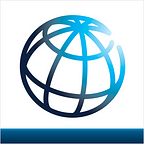This week at World Bank EduTech
week of April 12, 2021
This week, we:
- participated in the Aprendo en Casa discussion about hybrid learning;
- highlighted COVID-19 data trackers focused on providing information on learning modalities and overall impact of the pandemic on education system;
- shared themes for upcoming knowledge packs — short, pragmatic guide for educators to make informed yet quick decisions — to support #edtech interventions; and
- shared upcoming blockchain for education programming.
#Aprendo En Casa Event
Sr. Education Specialist Cristobal Cobo participated in the #AprendoEnCasa discussion about hybrid learning, with Camila Campos of Enseña Chile and Chris Dede of Harvard Graduate School of Education. Learn more at aprendoencasa.org.
COVID-19 data trackers
In an earlier weekly recap, we shared COVID-19 data trackers focused on providing information on learning modalities and overall impact of the pandemic on education system. This week, we shared more about these on our Twitter.
Upcoming Knowledge Packs
Supported by the Continuous and Accelerated Learning program, our team is creating “Knowledge Packs” — short, pragmatic guide for educators to make informed yet quick decisions — to support edtech interventions.
You can find existing KPs here on topics like EdTV, EdRadio, and edtech innovation ecsosystems.
This week, we share a preview of new KPs in the works:
Devices: How to determine the right device for education?
When thinking about devices for education, this KP will explore a 4-step process to better determine the right device for each context:
a) assess the current situation (identifying the maturity of the EdTech integration within the different contexts of the country)
b) identify the use case scenarios (the objectives that the country wants to achieve from a pedagogical perspective)
c) search for solutions (to support each case scenario according to the technology readiness level, thinking beyond the acquisition cost of the devices)
d) iterate to improve the choices (learning form experiences, evaluating previous experiences, defining success upfront, improving the design of the program for the next phases).
Cloud: How to apply cloud for education?
There is an increasing interest around the opportunities that cloud services offer for education and there are already several examples of everyday use of cloud services in education: communications, file sharing, student information systems, learning management systems, services for artificial intelligence. The use of cloud services supposes a change in the thinking on how infrastructure is delivered and this change of mentality is one of the reasons that explains why some countries are not adopting it (yet): the fear of not having control of the infrastructure, the uncertainty of the costs.
This KP will explore some of the potential advantages of cloud, such as the ability to have exactly what the country needs when it needs it and paying for only what they use -on demand, in a flexible and scalable way. It will also explore steps to create a cloud strategy.
EMIS 2.0
As we mention in the 5th principle of the EdTech approach paper (Reimagining Human Connections : Technology and Innovation in Education at the World Bank, now available in Spanish as well), data-driven decision making is essential, but many countries still rely on information systems that don’t provide actionable information in a timely manner. The production of data and the capacity to analyze the data are different things.
The EMIS 2.0 KP will explore what the traditional education management systems can provide — where data is mainly collected for annual census reporting but with no learning analytics or early warning systems are available to guide decision making — with what EMIS 2.0 Learning and Accountability System Architecture can offer.
Blockchain for Education
The EdTech team has launched a Community of Practice (CoP) with the aim of sharing different experiences and opportunities on the use of this technology in education. As part of the work of this CoP, we are organizing a series of webinars, and the second one will be focused on Education Ecosystems/Crypto-Networks (e.g., new organizational structures among LMICs to facilitate collaboration within education, focused on opensource standards). The workshops are an extension of the evolution of the World Bank’s Evoke program and the webinar held on December 17, 2020 to share lessons learned from the blockchain for youth empowerment pilot in Colombia. Watch Blockchain for Education-Building the Learning Economy-Webinar #1 here and stay tuned for more details about programming!
Recommended Reading
Checklist for Overcoming Digital Barriers to Inclusion in Online Learning. During the pandemic, online learning replaced in-person learning in many countries. This created new learning opportunities but also posed challenges for inclusion. How can programs that use online learning be more inclusive? A checklist to help teams reflect on digital barriers to inclusion in online learning and embrace more inclusive practices divides considerations into three phases: planning, engagement (such as training), and reflection.
